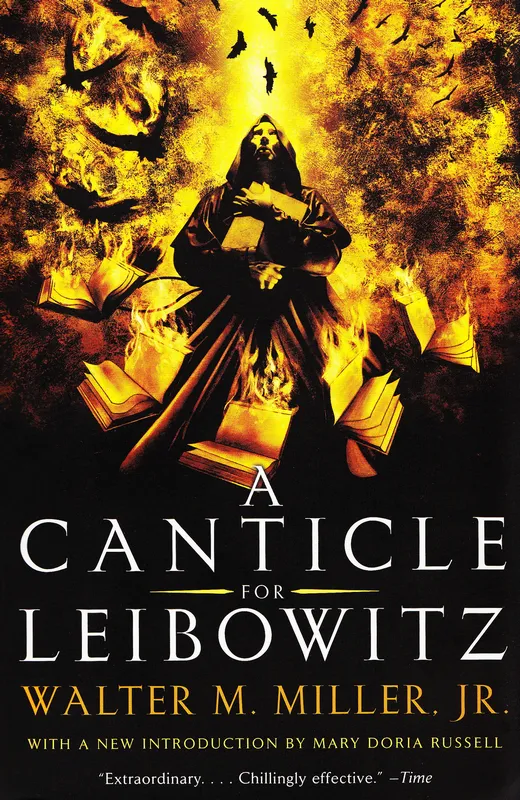To me, this book was very difficult to get through. It wasn't the setting. The setting was fine. In a future ravaged a nuclear, world war full of horror and death; the narrative centres on the acts of religious figures. Society has collapsed. There are mutants in the wasteland. It isn't magic, it is just simply not understood that mutation comes from the nuclear fallout.
At first, it takes a very long time to pick up on this post-apocalytpic setting, and you start out thinking that the tale is simply historical fiction. But things start to click as an order of monks copy manuscripts - which are in fact blueprints for various things - electronic parts, motors, industrial equipment, and pass them down the generations thinking they are the holy scriptures of some advanced, past race.
The kicker is, its humanity. The monks are copying the technological remnants of a world that had a baptism of nuclear fire.
The pervasive lack of understanding that the monks persist with, generation after generation, and their fascination for storing and holding knowledge, is reminiscent of the illuminated manuscripts of history. Illiterate men copied books then, and in Miller Jr's tale (which was published in 1959) - he contends that in some future apocalypse, the same would happen again - and well, it is likely.
The book meanders along at a slow pace, given its length - but yet it covers so much future-history, and in so much depth. The dialogue is frustrating, to me, someone who definitely does not refer to themselves as religious, filled with Latin rambling, sanctimonious prose about Christ, God, Holy Spirits, Ghosts, and all of that.
My favourite part of this book is the description of the buzzards flocking around corpses. The phrase "The Earth was made for the buzzards" (or something along these lines) is repeated many times throughout the text, and it rings a nice truth. For once humanity has managed to eliminate itself, the buzzards will be all that is left to feed upon our corpses, laying open in the wasteland.
I guess that the tale is beautiful in a way - ordinary men with some beliefs interpret the world around them according to scripture, and as the settings change from era to era, the religious meditations grow more and more frustrating to me, as the hope to extend their influence toward the skies emerges. The beauty is in present in their stupidity, their ignorance, and the knowledge that we have of the world today, unbathed in nuclear holocaust of a mirror - of our own ignorance.

The horrors of humanity are well illustrated in the book. Of labour stolen, of life lost, of burying a body and seeing off the buzzards.
But ultimately, one day, perhaps humanity will be gone, and those very same buzzards will have no meal. If they can hope, and they hope for a feast, then humanity is their last meal.
A Canticle For Leibowitz was a difficult book. Not only for its subject matter and heavy emphasis on the actions of the Church, well placed for the progress and service unto itself, but also its lack of mercy in the face of horror, and it turning away from technology in favour of fervor.